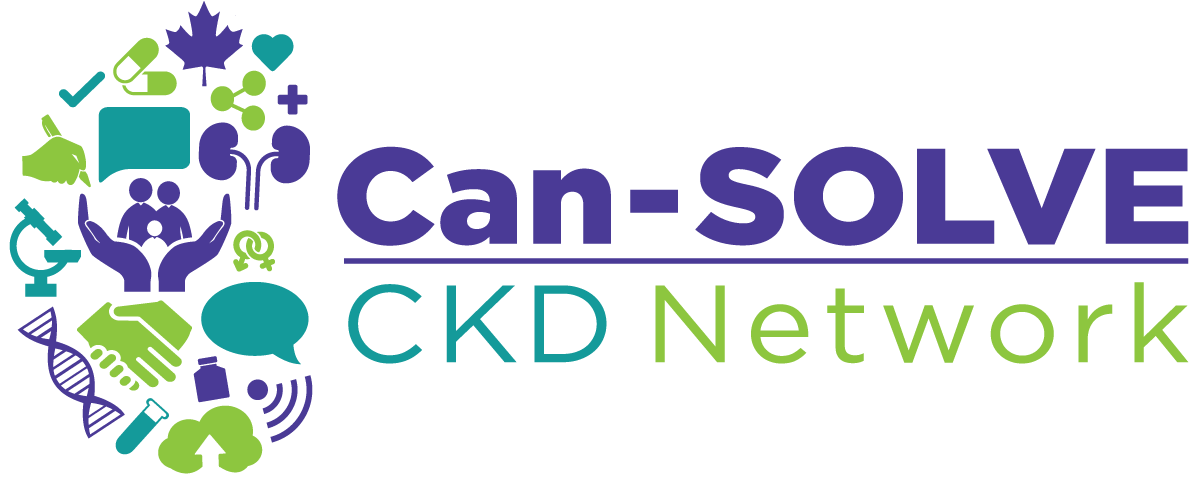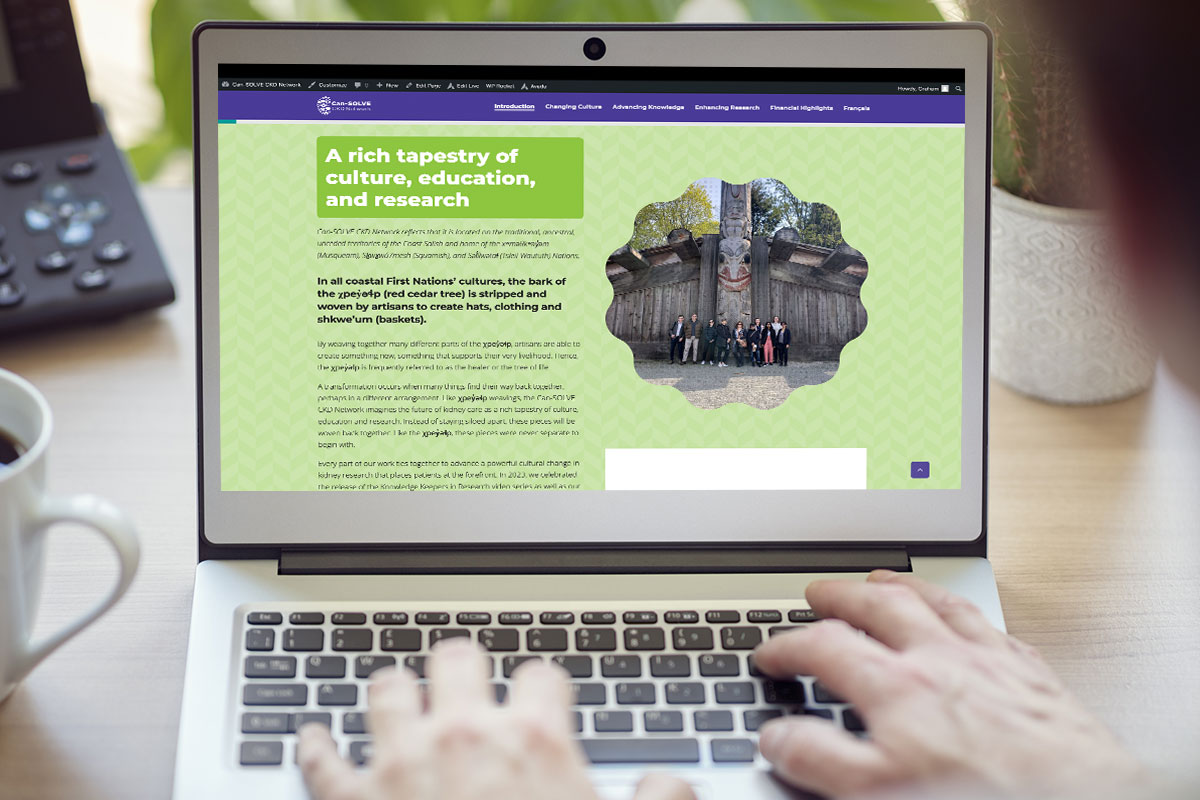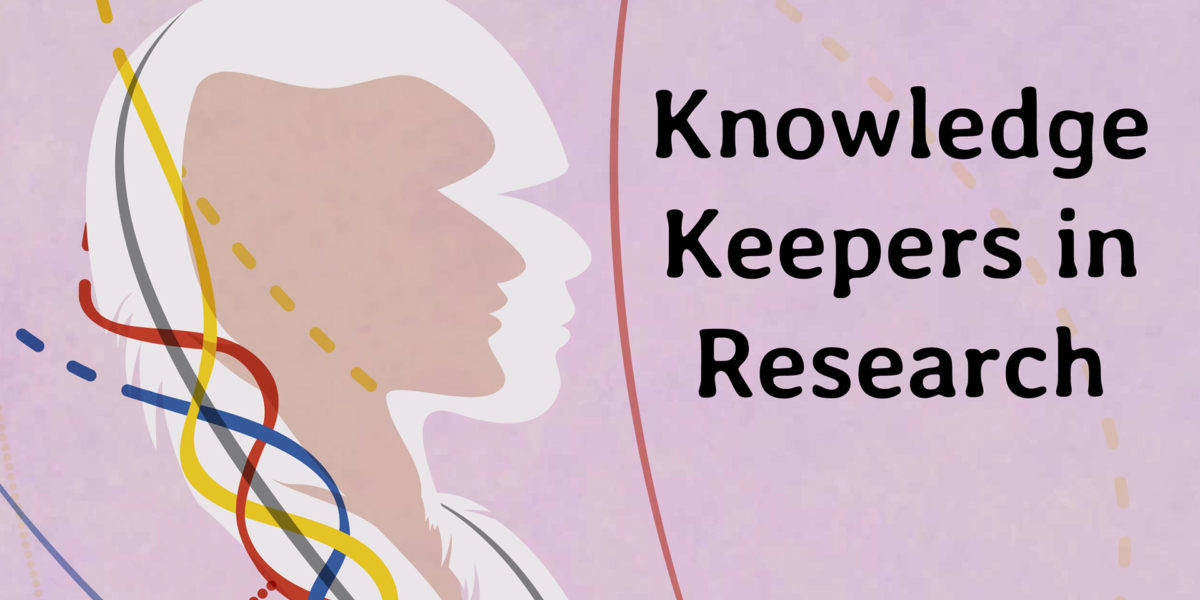Research through an Indigenous lens
Chronic kidney disease has a strong impact on the health of Indigenous people and communities. Through research and engagement, Can-SOLVE CKD is working to eliminate disparities in access to diagnosis and treatment facing First Nations, Inuit, and Métis individuals.
We are committed to respectful partnerships built on an understanding of the histories and cultures of Indigenous peoples. Through the wisdom and guidance of Indigenous patient partners, Knowledge Keepers, community leaders, academics, and health care providers, we strive to ensure Indigenous knowledge and perspectives are reflected across our research projects and governance.
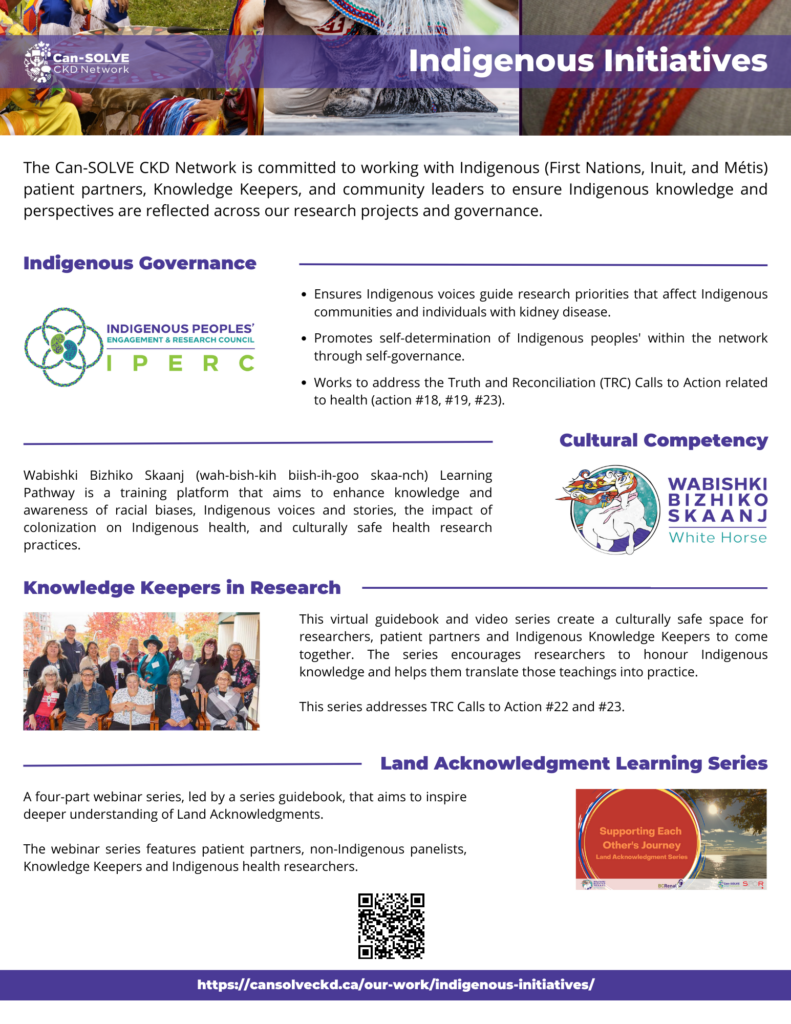
Indigenous governance
The Indigenous Peoples’ Engagement and Research Council (IPERC) plays a valuable role in providing governance and oversight within the Can-SOLVE CKD Network. IPERC exists to ensure Indigenous voices are heard and to guide research priorities that affect Indigenous communities and individuals with kidney disease.
To support this mission, IPERC members actively oversee the network’s research projects, as well as the development of training materials and other initiatives.
IPERC is leading a range of activities that support researchers and patient partners to become more aware of racial biases, Indigenous voices and stories, the impact of colonization on Indigenous health, and culturally safe health research practices.
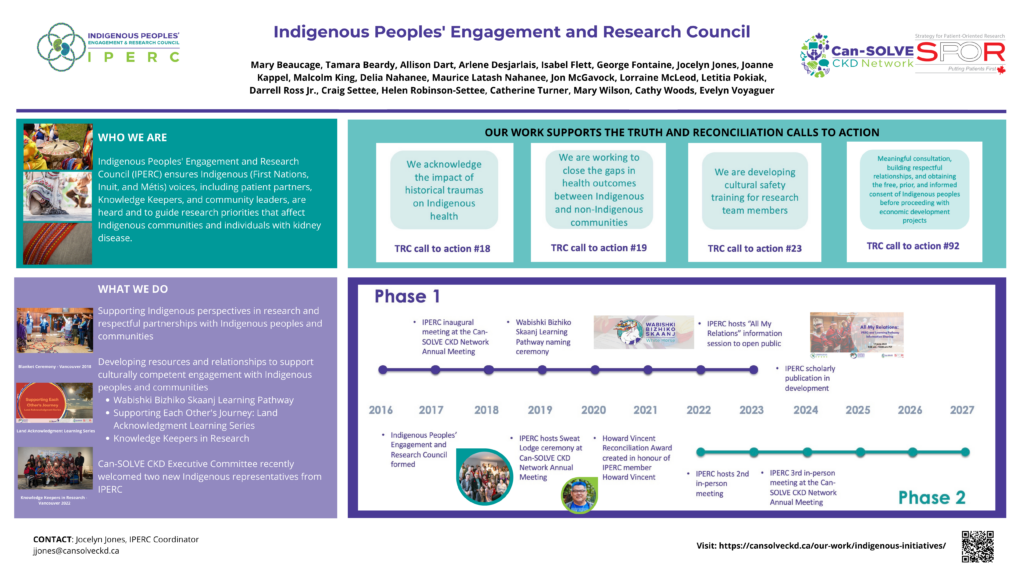
Ceremony
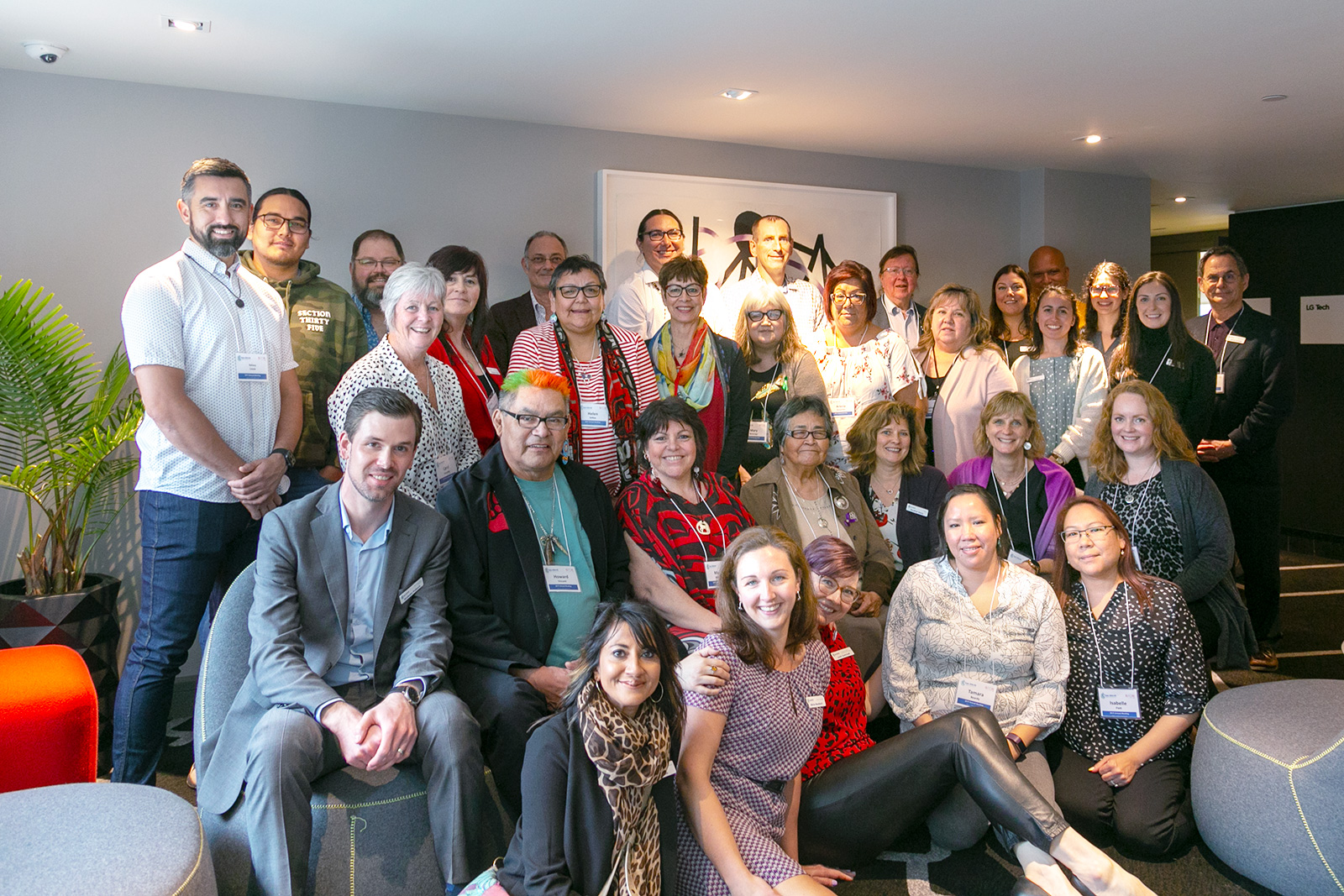
Can-SOLVE CKD has adopted Land Acknowledgements to open all virtual and in-person meetings. This is done to recognize the numerous and distinct First Nations across Canada and acknowledge their traditional stewardship over the land. We have also created a four-part learning series to share teachings on the how, what, and why of acknowledging traditional territories.
A variety of other ceremonies have been included in the network’s activities, guided by IPERC members:
- sharing circles
- sweat lodge
- blanket ceremonies
- smudging
- offering of tobacco
- opening/closing prayers
- annual honouring of the Wabishki Bizhiko Skaanj Learning Pathway name at the Sundance Ceremony in Manitoba
These Indigenous ceremonies enhance knowledge translation and Indigenous health and wellness. Importantly, these ceremonies are also training opportunities for network members to engage in Indigenous ways of doing, knowing and being.
Indigenous Knowledge
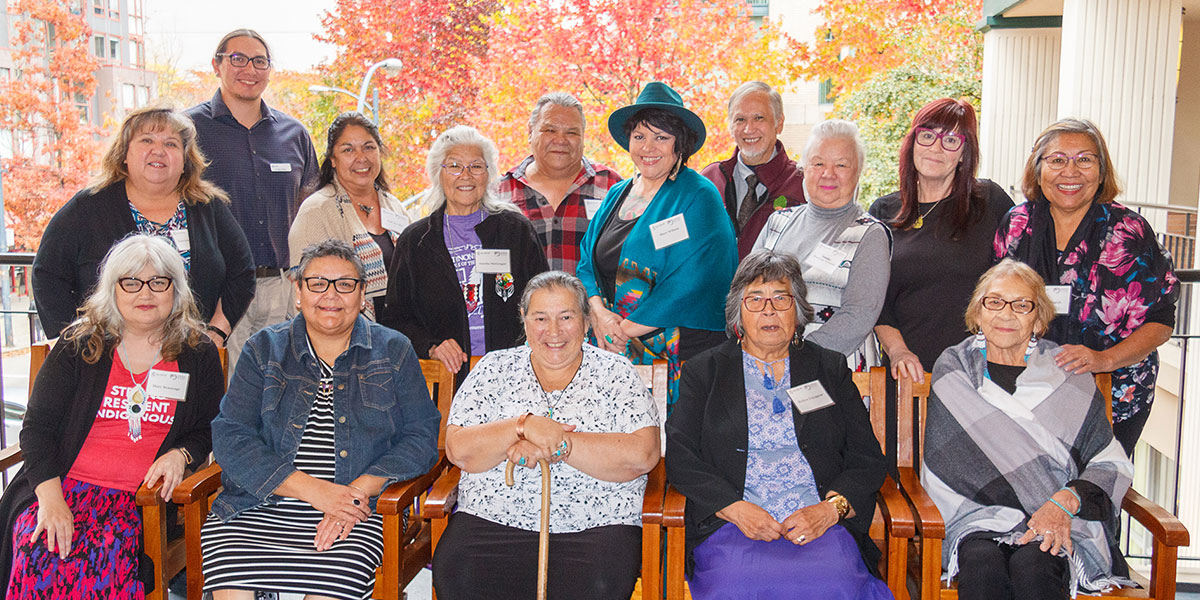
Storytelling is a valuable method used to share patient experiences within the network, and numerous Indigenous patient partners have shared their experiences through the Storytelling for Impact module. Their stories highlight calls to action and aim to increase awareness of patient-oriented priorities.
Another methodology involves teachings from Knowledge Keepers, as part of the Wabishki Bizhiko Skaanj Learning Pathway. Can-SOLVE CKD hosted a gathering of Knowledge Keepers from diverse First Nations to share knowledge that was converted into a virtual guidebook. The Knowledge Keepers in Research guidebook encourages researchers to honour various forms of knowledge alongside Indigenous Knowledge Keepers and helps them translate those teachings into practice. Tobacco and other offerings were gifted to the Knowledge Keepers for their participation and sharing of knowledge at the gathering.
In addition, the network’s Indigenous-focused projects have developed culturally appropriate research protocols that promote better kidney health for Indigenous communities and individuals.
Indigenous Initiatives
June is National Indigenous History Month and the Indigenous Peoples’ Engagement and Research Council (IPERC) hosted a webinar “All My Relations: IPERC and Learning Pathway Information Sharing” on June 17, 2022. Attendees learned about IPERC and explored the Wabishki Bizhiko Skaanj Learning Pathway. The webinar served to amplify the Indigenous knowledge and perspectives which are reflected across the Can-SOLVE CKD Network.
Connect with us!
Subscribe to learn more about what we do, why it matters, and how you can get involved!
